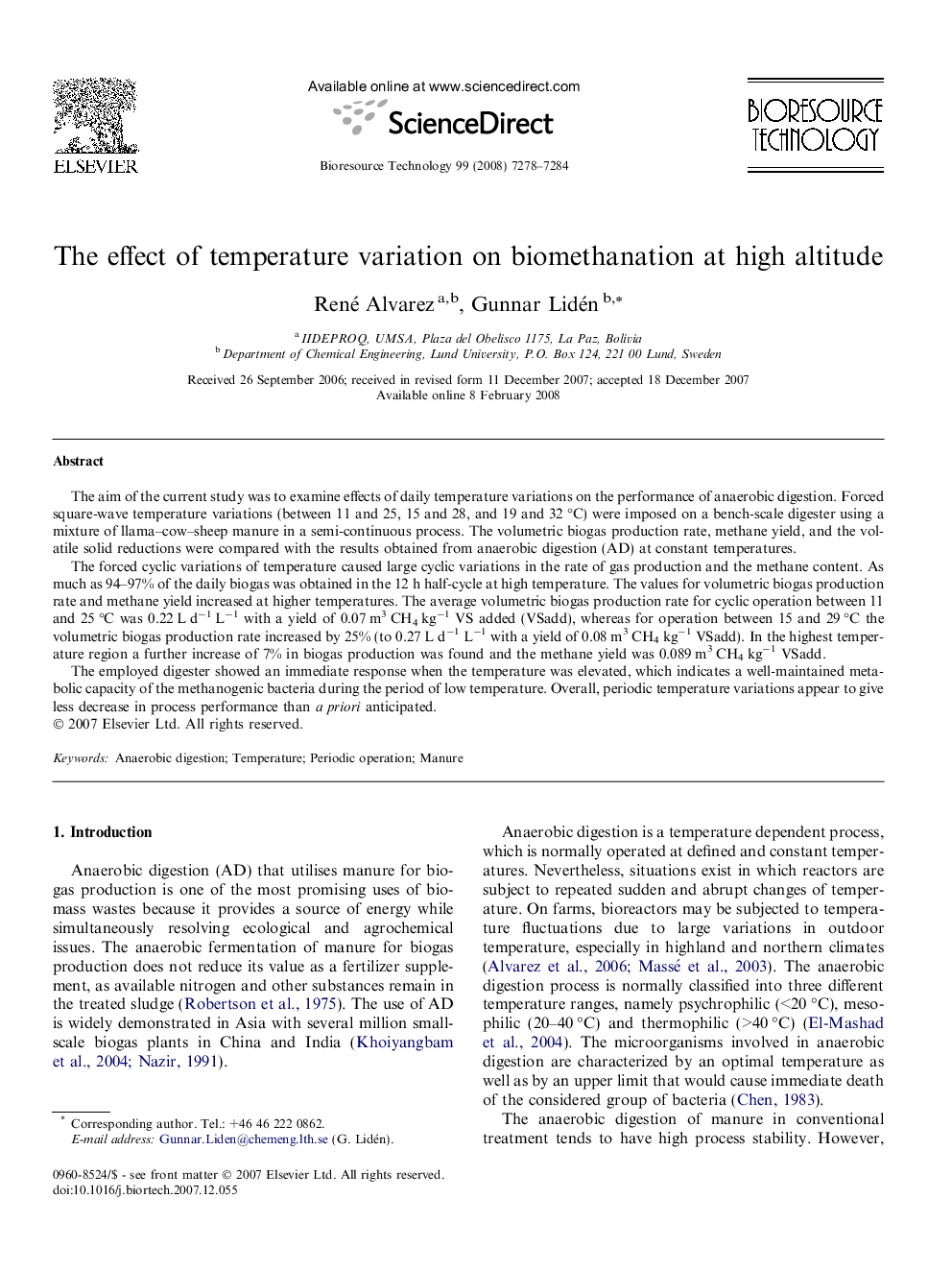| Article ID | Journal | Published Year | Pages | File Type |
|---|---|---|---|---|
| 685315 | Bioresource Technology | 2008 | 7 Pages |
The aim of the current study was to examine effects of daily temperature variations on the performance of anaerobic digestion. Forced square-wave temperature variations (between 11 and 25, 15 and 28, and 19 and 32 °C) were imposed on a bench-scale digester using a mixture of llama–cow–sheep manure in a semi-continuous process. The volumetric biogas production rate, methane yield, and the volatile solid reductions were compared with the results obtained from anaerobic digestion (AD) at constant temperatures.The forced cyclic variations of temperature caused large cyclic variations in the rate of gas production and the methane content. As much as 94–97% of the daily biogas was obtained in the 12 h half-cycle at high temperature. The values for volumetric biogas production rate and methane yield increased at higher temperatures. The average volumetric biogas production rate for cyclic operation between 11 and 25 °C was 0.22 L d−1 L−1 with a yield of 0.07 m3 CH4 kg−1 VS added (VSadd), whereas for operation between 15 and 29 °C the volumetric biogas production rate increased by 25% (to 0.27 L d−1 L−1 with a yield of 0.08 m3 CH4 kg−1 VSadd). In the highest temperature region a further increase of 7% in biogas production was found and the methane yield was 0.089 m3 CH4 kg−1 VSadd.The employed digester showed an immediate response when the temperature was elevated, which indicates a well-maintained metabolic capacity of the methanogenic bacteria during the period of low temperature. Overall, periodic temperature variations appear to give less decrease in process performance than a priori anticipated.
